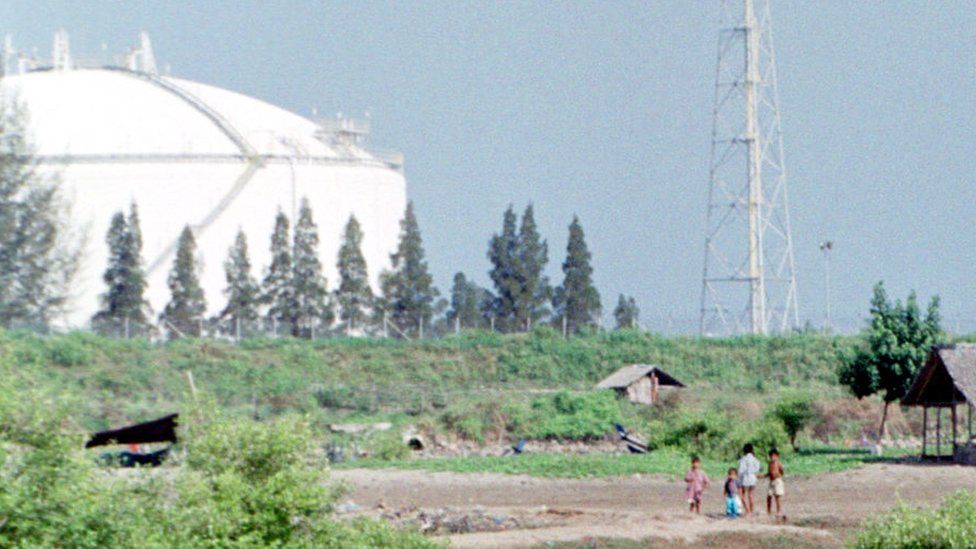
Eleven Indonesian villagers from Aceh province have reached a confidential financial settlement with oil giant ExxonMobil.
The villagers have been at the centre of a two-decade long legal battle over alleged human rights abuses.
They say they endured torture, sexual assault, and beatings by Indonesian soldiers contracted by ExxonMobil.
ExxonMobil said it condemns such abuses “including those asserted in this case against the Indonesian military”.
The villagers allege a number of crimes were committed – these included witnessing their loved ones being shot, pregnant women being forced to jump repeatedly before being sexually assaulted, and men being subjected to electric shocks, burns, and knife-inflicted graffiti on their backs.
In a statement, the oil giant said: “It should be noted while there were no allegations that any employee directly harmed any of the plaintiffs, the settlement brings closure for all parties.”
“We express our deepest sympathy to the families and the people who were involved.”
A trial was scheduled to begin at the end of this month in Washington DC, but has been averted due to the settlement.
The plaintiffs, identified only as Jane and John Doe for their safety, said they were satisfied with the outcome.
One of the villagers said that while the victory cannot bring back their loved ones, it represents the justice they fought for over the past two decades.
Agnieszka Fryszman, the lead counsel for the plaintiffs, praised their bravery in taking on one of the world’s largest and most profitable corporations.
She expressed satisfaction in securing a measure of justice for the plaintiffs and their families, and highlighted the egregious acts they endured.
The villagers allege a number abuses were committed – these including witnessing their loved ones being shot, pregnant women being forced to jump repeatedly before being sexually assaulted, and men being subjected to electric shocks, burns, and knife-inflicted graffiti on their backs.
Founder and executive director of International Rights Advocates and the attorney who filed this case in 2001, Terrence Collingsworth, said he was “pleased the villagers will have some peace” after the settlement.
“Their dedication and commitment to seeking accountability over two decades is inspiring,” he said.
Michel Paradis, a lecturer at Columbia Law School, who was not involved in the case, described the outcome as momentous.
“Exxon and its lawyers threw everything they could at them, and they overcame it. That is a testament not simply to their perseverance, but to the justness of their cause.”
“They and their lawyers should take tremendous satisfaction in the fact that they not only succeeded in getting accountability for what was done to them, but that they helped advance a sea change of reform to the way corporations govern themselves that will prevent things like this from happening again.”
The alleged atrocities were said to have taken place in and around ExxonMobil’s operations in the Arun field, North Aceh. This gas field, referred to as “the jewel in the company’s crown”, was among the world’s largest natural gas fields.
During much of the litigation period, ExxonMobil reported significant profits.
The financial details of the settlement remain undisclosed to protect the safety of the plaintiffs, who will maintain their anonymity.
While the financial settlement marks a resolution in the legal process, Indonesian human rights activists emphasize that it does not address the deep psychological trauma endured by the victims.
However, they believe that the outcome is significant in that it has brought the alleged atrocities to the attention of the world.
Related Topics
-
-
22 June 2001
-
